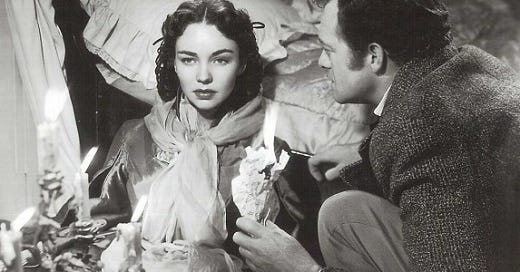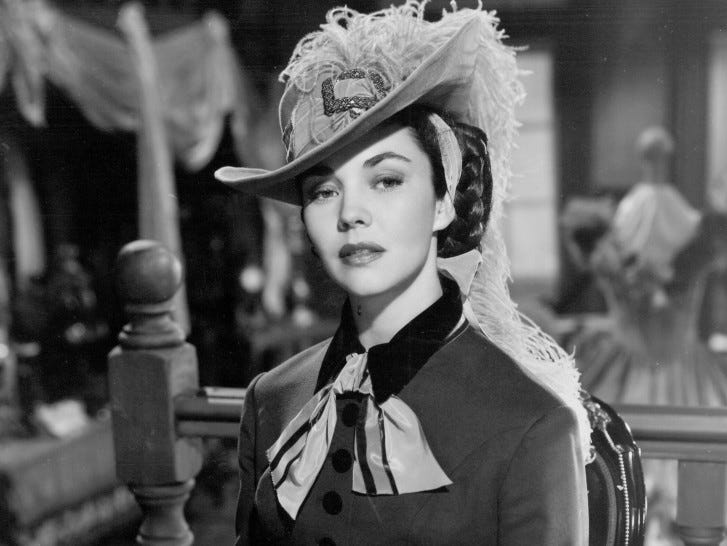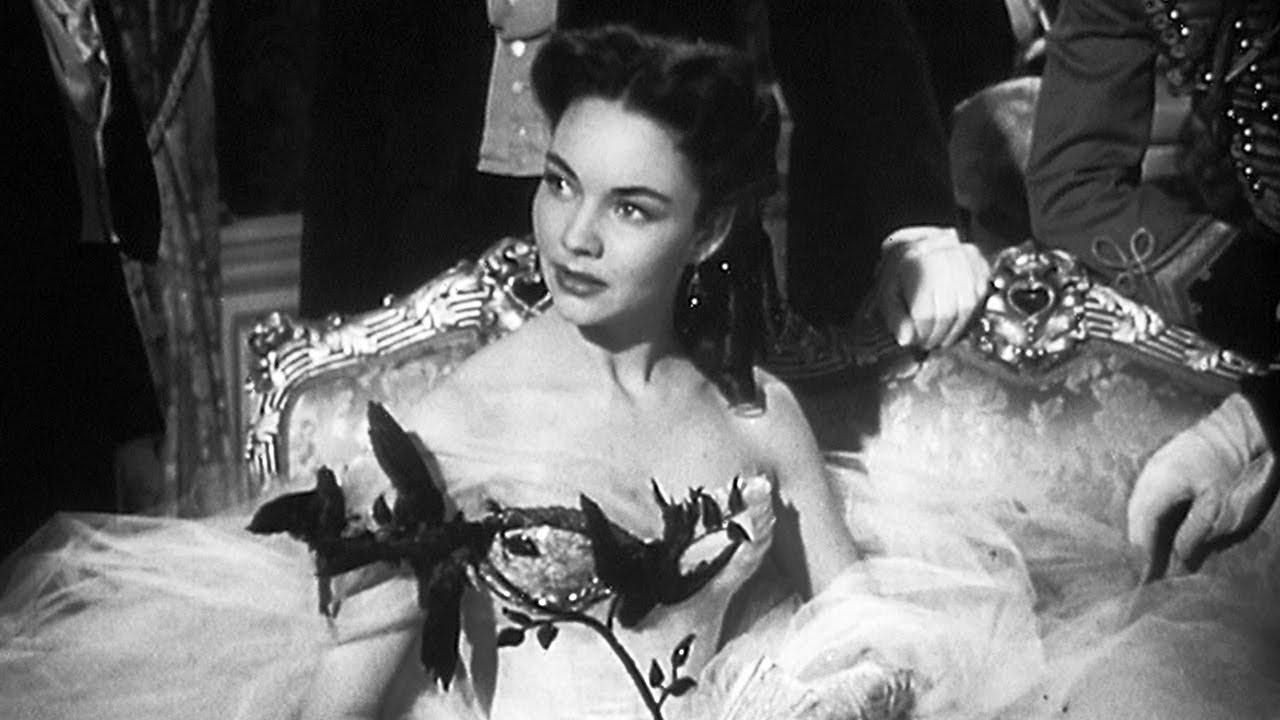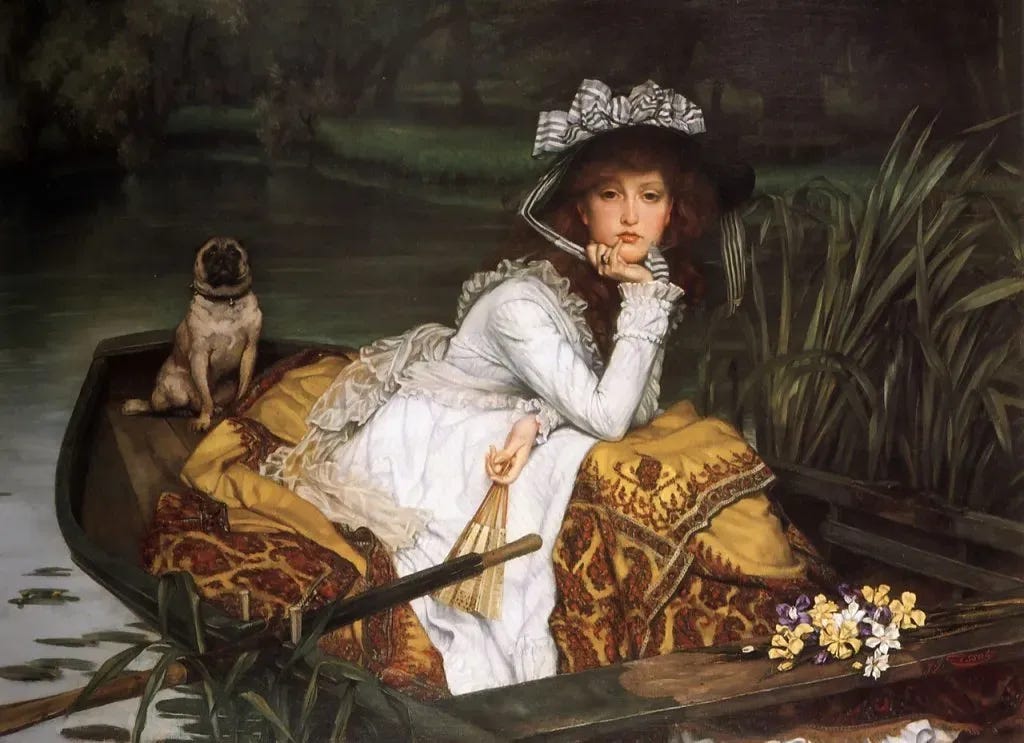From Yonville to Your Timeline: Flaubert’s Relevance in the Digital Age
Why Madame Bovary still speaks to us today
Happy Sunday and welcome back to Giselle daydreams! Sorry for not posting for a while, I was a bit too busy focusing on my business. Today, I decided to present a great book, again from French literature. I might be biased, but all my childhood, teenagehood, and young adulthood, I read in French, so my literature knowledge and references mostly come from French classics.
Gustave Flaubert’s Madame Bovary is often heralded as one of the greatest novels ever written, not only for its literary style but also for its profound exploration of human desire, societal constraints, and personal liberation. When it was first published in 1856, it was met with scandal and controversy, as its portrayal of an adulterous woman defying conventional morality challenged the norms of its time. Yet, beyond the story of a woman caught in the web of her own illusions, Madame Bovary is a novel that remains strikingly relevant today. It offers a lens into contemporary struggles with consumerism, dissatisfaction, and the pursuit of fulfillment, while also serving as both a liberating and cautionary tale about the complexities of personal freedom and self-awareness.
At its core, Madame Bovary is a novel about the human tendency toward dissatisfaction. Emma Bovary, trapped in the confines of provincial life and an unremarkable marriage, seeks to escape through passionate affairs, luxury, and fantasies drawn from romantic novels. Her relentless yearning for an existence more glamorous than her reality mirrors a struggle that continues to define modern life. Today’s culture, driven by social media, advertising, and aspirational lifestyles, often fosters the same sense of restlessness that consumes Emma. Many people, like Emma, chase ideals of love, wealth, and excitement, only to find themselves disillusioned when reality falls short.
The clash between romantic ideals and the harsh realities of life is one of the novel’s core themes of the novel. Emma Bovary, having been influenced by sentimental novels, believes in passionate, all-consuming love and a glamorous life. However, her expectations constantly clash with the dull reality of her marriage to Charles and the provincial society she inhabits. Her inability to reconcile fantasy with reality ultimately leads to her downfall.
Emma is defined by an insatiable longing for a better, more exciting life. She desires love, wealth, status, and adventure, but each pursuit leaves her increasingly unfulfilled. Her constant discontent serves as a critique of the human tendency to seek happiness in external things—whether it be relationships, luxury, or social status—without finding true contentment within.
This aspect of Madame Bovary is perhaps more relevant now than ever. In an era where carefully curated online personas create illusions of perfection, the novel serves as a reminder of the dangers of unrealistic expectations. Emma’s dissatisfaction is not merely a personal failing; it is the result of an external world that conditions individuals—particularly women—to believe that happiness is contingent on romance, beauty, and material success. The novel forces us to question how much of our own discontent is created by the stories we consume and the images we idolise.
The novel highlights the rigid social structures of 19th-century France, particularly in relation to women. Emma’s aspirations are limited by her gender and social class, making her quest for a different life even more tragic. While men like Rodolphe and Léon can move freely and pursue their desires, Emma faces severe consequences for her transgressions, reflecting the double standards imposed on women.
While Madame Bovary is often read as a cautionary tale, it is also a liberating one. Emma is a character who, despite her tragic end, refuses to conform quietly to the rigid expectations imposed upon her. In the 19th century, women were expected to accept their prescribed roles as dutiful wives and mothers, sacrificing personal ambition or passion. Emma’s rebellion—her pursuit of love and pleasure outside marriage, her insistence on living beyond her means, and her refusal to accept an ordinary life—was radical for its time.
Today, Madame Bovary continues to speak to women’s struggles for autonomy and self-definition. Though society has evolved, many of the pressures Emma faced remain: the expectation to balance personal desires with societal norms, the pressure to appear fulfilled, and the challenge of navigating relationships in a world that still often places unrealistic demands on women. Emma’s tragedy is not just that she yearns for more but that the world around her does not allow space for her desires without severe consequences. Her story challenges us to reflect on the limitations still imposed on women’s choices and the consequences of seeking fulfilment in a world that often denies it to them.
Emma lives in a world of illusion, whether through literature, love, or materialism. She believes that romance should resemble the dramatic stories she reads, and she thinks wealth will bring her happiness. Her failure to see through these illusions prevents her from making rational choices, ultimately leading to her financial ruin and tragic end. While Emma’s rebellion against her mundane life is compelling, Madame Bovary also serves as a warning about the dangers of illusion and self-deception. Emma is not merely a woman trapped by her circumstances—she is also trapped by her refusal to see the world as it is. She clings to the fantasies she has read in novels, convinced that love should be all-consuming and that material wealth equates to happiness. Her downfall is not solely caused by society’s restrictions, but also by her inability to reconcile her dreams with reality.
This aspect of the novel is especially pertinent in the digital age, where media bombards us with ideals of perfection that rarely reflect reality. The modern individual, like Emma, is often caught between fantasy and actuality, influenced by the intoxicating promise of something better. Madame Bovary teaches the necessity of self-awareness—of recognising the difference between aspiration and illusion. Emma’s lack of introspection leads to her destruction, highlighting the importance of confronting reality rather than escaping it. Despite her attempts to find love and fulfilment, Emma remains deeply isolated. She lacks genuine companionship, and even in her affairs, she feels abandoned or disillusioned. Her loneliness underscores the difficulty of true connection in a world bound by social conventions and personal deception.
Emma's obsession with luxury and status reflects the dangers of consumerism. She accumulates debts in an attempt to buy happiness, believing that fine clothes, extravagant furnishings, and expensive trinkets will make her life more meaningful. This theme is highly relevant today, as modern society continues to equate material success with personal fulfilment. Flaubert critiques the hypocrisy of bourgeois society, where appearances matter more than substance. The very people who judge Emma—whether for her affairs or financial irresponsibility—are themselves morally compromised. The novel exposes how society enforces strict moral codes while turning a blind eye to its own corruption and contradictions. Madame Bovary also raises questions about whether Emma is doomed from the start or whether she actively chooses her fate. While she is trapped by societal constraints, she also makes decisions that contribute to her downfall. This interplay between fate and free will makes Emma a complex, tragic figure rather than a mere victim.
Madame Bovary is more than a story of adultery and despair—it is a meditation on desire, society, and the human condition. It remains liberating because it gives voice to an individual yearning for more than what society dictates. It remains a cautionary tale because it warns against the perils of mistaking illusion for truth. In a world where people are still searching for fulfilment in love, status, and material wealth, Flaubert’s masterpiece continues to resonate. Emma Bovary’s tragedy is not just her own—it is a reflection of the eternal struggle between expectation and reality, passion and restraint, illusion and truth.
FIN.
As always thank you for reading, subscribing, commenting, and sharing. It helps the newsletter grow and reach new readers.









